Global Citizenship Education in Nicaragua with Nobis
It’s a bit bizarre when I turn on the television and see Nicaraguans outraged, chanting, marching, hiding their identities in a revolutionary stance. The images on the screen don’t align with my personal images of home cooked meals, family run farms, and revolution on a quieter level, but that was 2017 and this is now…
In the summer of 2017, through a program sponsored by Nobis World, I traveled with seven other educators for a seven day excursion through Nicaragua. The Nobis World program provides professional development opportunities, both domestic and international, to educators interested in service learning, community building, and culturally responsive practices all within the framework of several “big ideas” including the role of history, power, relationships, and global citizenship. This wasn’t a trip to help marginalized Nicaraguans survive and thrive, this was an opportunity to see Nicaraguans in their specific spaces innovate and actualize community building and self care, so we, educators and outsiders, could take these lessons back to our classrooms and educational institutions.
And so we traveled with these concepts in mind… self empowerment in Cafe Sonrisas in Granada, a restaurant run by Deaf/deaf young people alongside blind and other exceptional people who make hammocks in a room on the side. This was an example of an asset-based approach to community development. The founder, Tio Antonio, reminded us that he needed to reframe others’ understanding of what Deaf/deaf and blind kids could do, rather than feel bad for them. These children are competent and capable, he said, and we have existing resources and knowledge to provide quality products to a global market.

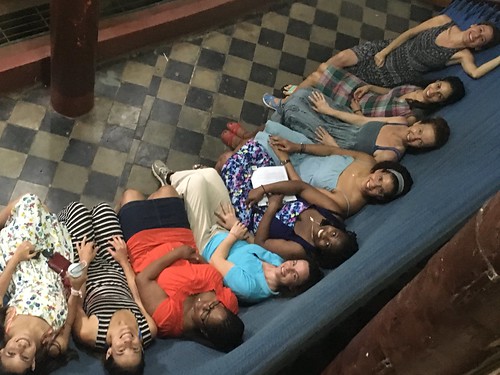
When we traveled to San Ramon and visited the Casa del Nino Project and Escuela de Arte, we witnessed the collective identity of a community and the preparation of young community members. The art space was devoted to children of the community who accessed the space both before and after school. Before supplies became available, children painted on the floor and use whatever materials were available. When they began to create, the children’s art was sold in order to buy more supplies. Tied into their mastery of their specific craft, a literacy campaign highlighted the children’s formal education growth with teachers who were former students of the program. I looked around the room of students teaching teachers about their art and their passions and I thought, when teachers take on a “learner’s stance,” our students reap the benefits.
We visited Vicente Padilla and his family on their family farm, Agro Ecologia Espadilla in San Ramon, and the power of the personal, historical, and collective narrative came together to emphasize that a shared history equals a shared fate. Nestled between impoverished Honduras, and voluntourism hotspot, Costa Rica, Nicaragua has found itself between dependency, co-dependency, and the building of Nicaragua’s own nation state. The geography of volcanic regions, farmland, and waterways tell a story of Nicaragua in and of itself. Within the story of land, power, and politics, Vicente Padilla offered the story of his family, their land, revolutionaries, and counter-revolutionaries that came to rest on the family’s 8.7 acre organic farm. We ate the bounty of their labor, prepared lovingly by the Padilla family. We traversed the acreage, and we sat and drank coffee with the family immersing ourselves in the story, the smells, and the perseverance of the Padillas and their tale, which could not be told without the telling the history of the country.
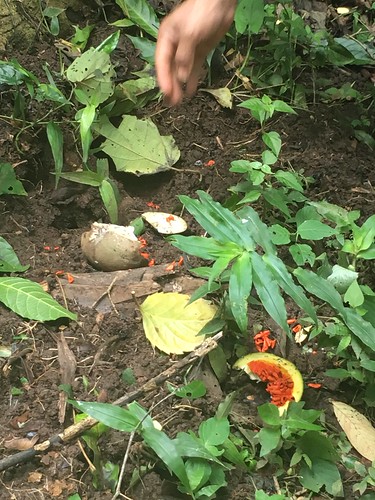
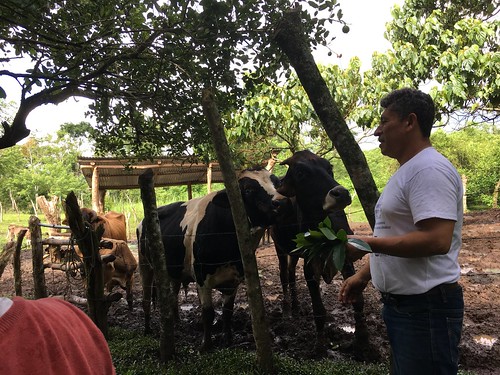
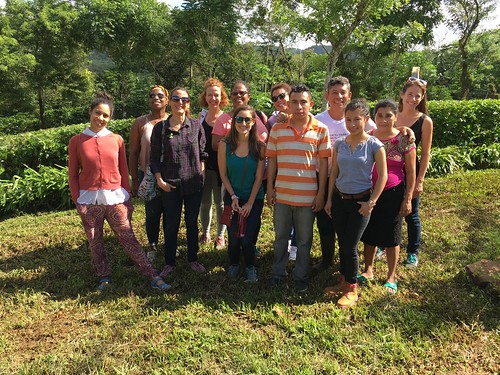
I should also share that our Nobis group just happened to be comprised of all women. This is not a Nobis initiative, rather, the way things worked out for this particular session. So, when the Nobis group met the Mujeres del Plomo and the Colectivo de Mujeres La Pita, women met women from very different life experiences, and yet, our collective relationships, our shared responsibility, and our vision for the future was seamless. The women shared their work of first preparing and selling jelly and marmalade to a move of creating more sustainable products like bracelets and journals. This female collective made money to buy their children school supplies, provide roofs for neighbors, and were saving to build a library for their community.
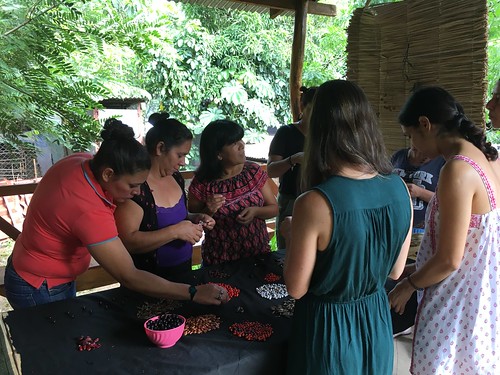
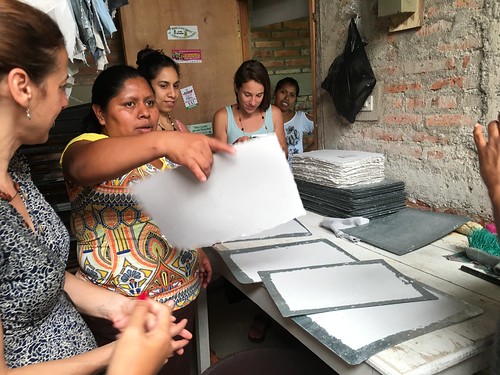
When we visited the already established town library in Esteli, we realized the importance of literacy, as emphasized by the Sandinista literacy campaign from decades ago. Embedded in the goals of the library is improving the quality of life for all in the community. Bebeteca was a recent initiative for expectant mothers who would begin to read and provide music for their babies, all in utero.
I am a world traveler and I’m proud of my passport that bears stamps from Turkey, and Cuba, Cambodia, and Jamaica. However, what the Nobis experience offered me was access, to people, places, and spaces I would not have had otherwise. We accessed libraries, and monuments, but we also accessed living rooms, and work spaces. We spent time with one another as educators and global citizens as we reflected together about our experiences, and how we would bring these moments into our respective classrooms or educational institutions. Whether our focus is self-efficacy, or building community partnerships, our experiences with Nicaragua and her people would set the stage for our interactions at home. It’s important for any marginalized group to understand the history of their people, their nations, and their traditions. It’s important for students to know the varied complex histories of their people, and people around the world. This is the cornerstone of citizenship education.
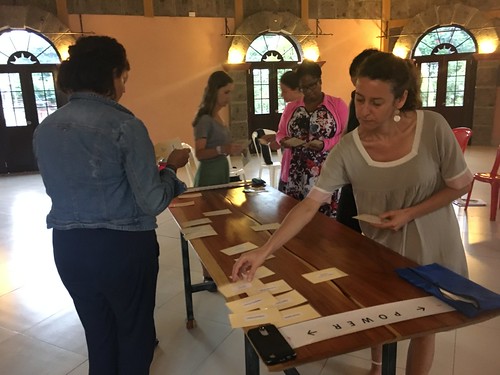
I’m far removed now sitting on my couch watching the revolution in Nicaragua on a screen, but I realize through the power of pens, paint brushes, or seeds, the revolution has continued on the streets, farms, and communities in Nicaragua and because of the people, it won’t stop.
To Nicaragua, with Love.
For more information on Nobis World, please visit: www.nobisproject.org
Jillian McRae has been a public school English teacher for eighteen years. She has co-created and co-taught several college level courses during her tenure at Ossining High School including: SUNY: Classism, Racism, Sexism; The Black Experience through Literature & History; Concepts of Race & Culture in the Modern World; and Latinos in the U.S. She has an undergraduate degree in English with a double minor in Urban Education and Africana Studies from the University at Albany and a Masters in English Education from Teachers College. She lives in New Rochelle with her greatest accomplishment in life, her daughter, Jalen.
All photos courtesy and copyright Jillian McRae
-

- Log in to post comments



















